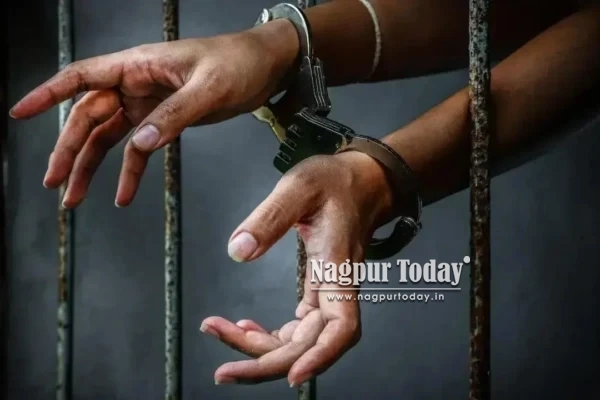
Nagpur: In a stunning embarrassment for Nagpur police, Woman Police Sub-Inspector (PSI) Deeksha Tajne from Hingna Police Station was arrested inside the District Court premises on Tuesday after being exposed for extorting a bribe from a key witness in a POCSO case involving the molestation of a minor girl.
The PSI allegedly demanded Rs 50,000 from the witness, who is a relative of the young survivor, threatening to implicate her in the case if she failed to pay. The bribe was reportedly meant to ensure that the accused driver received lenient treatment during the investigation.
The shocking revelation came during live court proceedings, when the witness bravely stepped forward and testified that PSI Tajne had already taken Rs 20,000 from her and was pressuring her for the remaining amount. The testimony sent shockwaves through the courtroom.
Immediately after the explosive statement, Assistant Public Prosecutor Saroj Khaparde lodged a formal complaint in the court. Acting on the court’s direct orders, the Sadar Police swung into action and detained PSI Tajne on the spot, marking one of the rare instances of a police officer being arrested right inside the court complex.
The original incident took place in Wanadongri, where a minor NEET aspirant was molested by car driver Liladhar Mansaram Samarth (37). Another student recorded the assault, leading to the driver’s arrest by Hingna Police. The witness who exposed PSI Tajne is connected to this case.
Senior Police Inspector Amol Deshmukh confirmed the swift action taken on the court’s instructions. PSI Tajne has been handed over to the DCP Zone 1 squad, led by Rishikesh Singareddy, for a detailed investigation.
Hingna Police Station in-charge, Inspector Jitendra Bobde, also confirmed the detention, adding that an internal inquiry will begin on Wednesday. Further action will be taken based on the findings of senior officers.
The incident has sparked outrage across Nagpur, with serious questions being raised about corruption within the police force, particularly when it compromises justice in cases involving children and sexual crimes.














